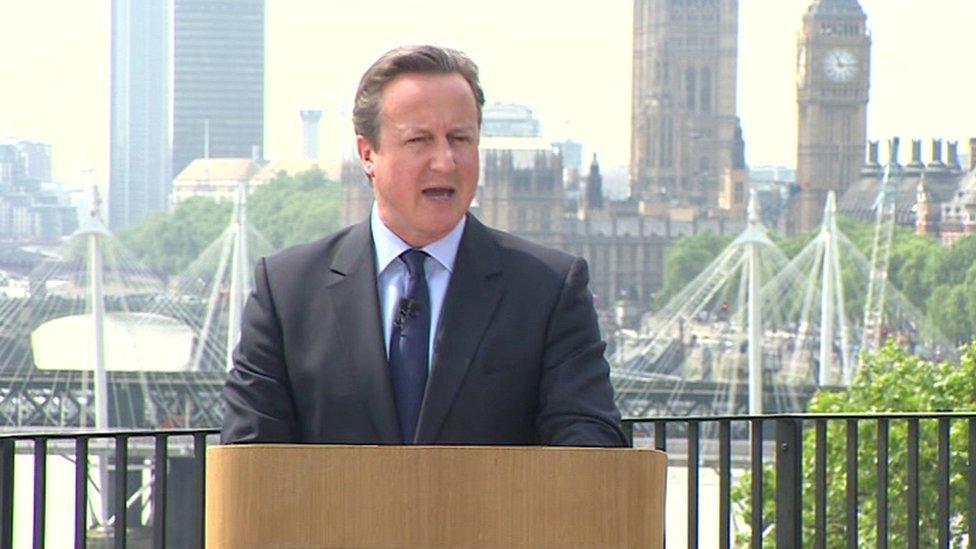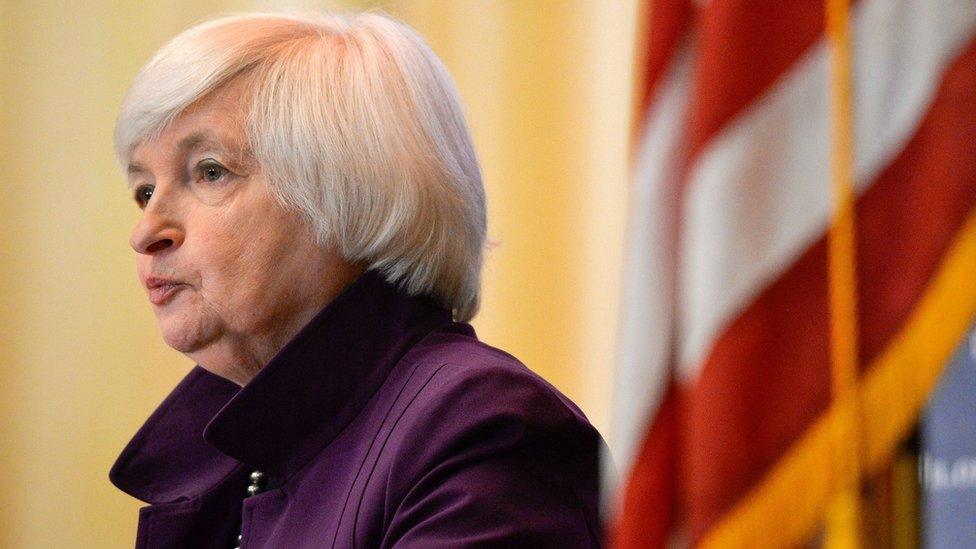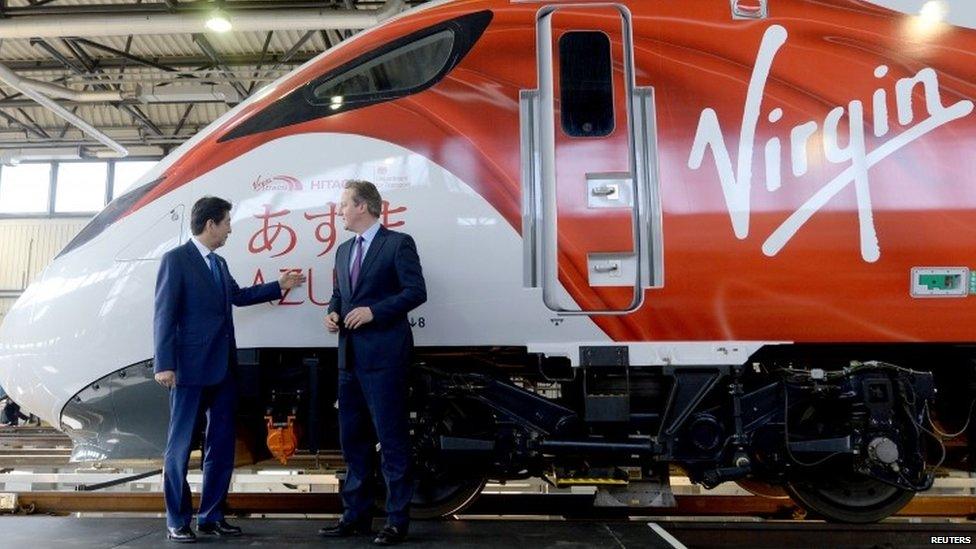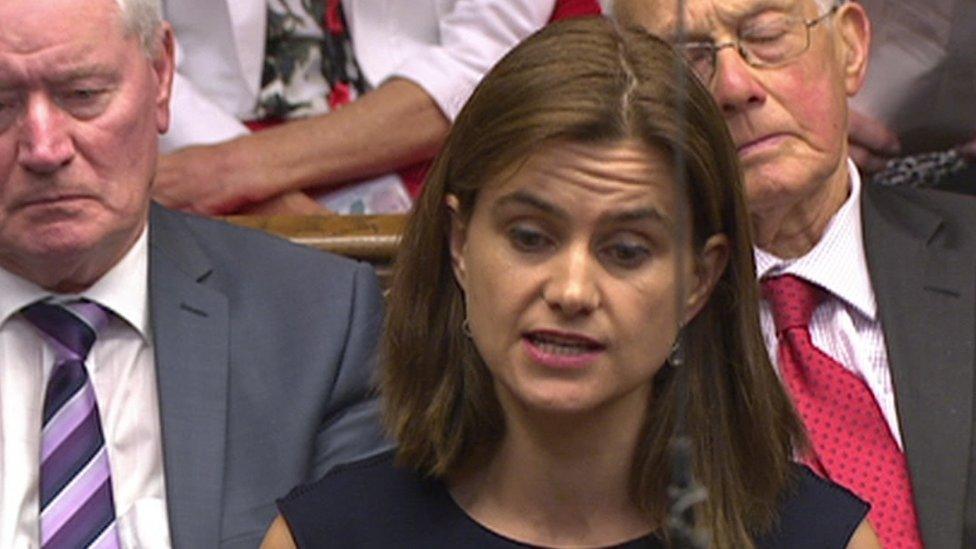Don't sit on the sidelines over EU, PM urges
- Published

David Cameron has urged voters not to "sit on the sidelines" and to back his call for a vote to stay in the EU.
The PM claimed "complete untruths" were coming from the Leave side and said he was "not at all" worried about losing the 23 June referendum.
At a hastily-arranged press conference, he urged young people to register to vote before midnight's deadline.
Vote Leave said the PM was in a "blind panic" and "too chicken" to debate against them head-to-head.
Mr Cameron said he had decided to call the press conference after watching the news on Monday night, saying the contrast between the two sides in the debate "came over me".
Without naming Justice Secretary Michael Gove - who said on Friday the British people had "had enough of experts" warning against Brexit - he said the comment showed "complacency and nonchalance".
'Flagging' campaign
The PM said the Remain campaign was backed by "credible independent experts", hailing warnings against an EU exit from Japanese multinational Hitachi and the chairwoman of the US Federal Reserve.
The PM launched a fierce attack on Vote Leave, which is spearheaded by senior Conservatives including some of his cabinet colleagues, accusing them of "telling complete untruths to the British people" including claiming the UK's rebate was at risk and that it would be liable to contribute to future EU bailouts.
He said the voter registration deadline marked a "vital moment" in the campaign, saying the outcome would "alter the destiny of our country forever", adding: "So I say to everyone - especially young people in our country who this will affect most of all - don't sit it out on the sidelines.
"Don't let someone else make this decision for you."
Vote Leave responded by saying the PM was panicking over his "flagging" campaign, dismissing his reassurances on bailouts and the rebate and claiming his renegotiation was a "failure".
UKIP MP Douglas Carswell said: "The In campaign is in a blind panic. David Cameron's renegotiation was a failure -no-one believes he got a deal worth the paper it was written on.
"Now people are rejecting his campaign of fear. The prime minister says we need a proper debate about the facts but he is too chicken to take on anyone from the Vote Leave campaign head-to-head."
The PM's press conference comes after Federal Reserve chairwoman Janet Yellen said a UK vote to leave the EU could have "significant economic repercussions" for the US and that Brexit was one factor that the US central bank would consider when deciding whether to raise interest rates.
In a speech on Monday, Ms Yellen stressed that investors' "appetite for risk" could change quickly and that a UK exit from the EU would be likely to affect market sentiment.
Her remarks echo comments from other economists about the impact of a Brexit on the US economy.

Federal Reserve chair Janet Yellen warned of "economic repercussions" if the UK votes to leave the EU
Meanwhile, writing in the Mirror,, external Hitachi's chairman said the "cold economic reality" was that Brexit would lead to uncertainty and extra costs for business.
Hiroaki Nakanishi suggested Japan had invested heavily in the UK on the basis that its firms were "treated as European".
Hitachi is the latest foreign investor in the UK to warn of the consequences of a vote to leave in the referendum on 23 June. Last week US investment bank JP Morgan Chase said it could cut up to 4,000 jobs in the event of an EU exit.
Mr Nakanishi said his firm, whose European headquarters is located in Berkshire, had invested £1bn in the UK energy and rail sectors in recent years. He said it was in the process of recruiting 730 new workers to build the next generation of high-speed inter-city trains.
But if the UK was to leave the EU, he said the future investment case would look "very different".

Hitachi moved its global rail headquarters to London last year
The UK was the "best base" to access the EU's internal market of 500 million customers and the firm's capacity to win more business and deliver orders could be derailed by going outside it.
"In the 80s Nissan and Toyota came to the UK on the basis that if they produced here and employed a British workforce they would be treated as European companies," he said.
"This was only possible because Britain was inside the EU; and so the UK car industry was revived and became an exporter again. From Japan, this incredible success story looks like a huge gain from the UK's membership of the EU."
"We worry because those advocating Brexit have no answer to how the UK could negotiate cost-free access to this huge market from a position outside it.
"It would take a long time and result in uncertain market conditions; during this renegotiation period, investors would probably be waiting to see the outcomes, hold back on investment, and jobs would be lost. This is the cold economic reality of Brexit."
On a visit to London last month, Japanese prime minister Shinzo Abe warned that leaving the EU would make the UK less attractive to Japanese investors.
Justice Secretary Michael Gove said many organisations arguing for Remain had previously made similar points in favour of joining the euro.
"They were wrong then, they are wrong now," he said.
Mr Gove said people's economic welfare would be greater if the UK "takes back control" and is free to form trade deals with countries like the USA, Canada, India and Japan.
- Published5 June 2016
